With Donald Trump re-elected as US president, many European businesses are worried about a wave of tariffs that could lead to a trade war. Are businesses overreacting or should the European Union (EU) be better prepared?
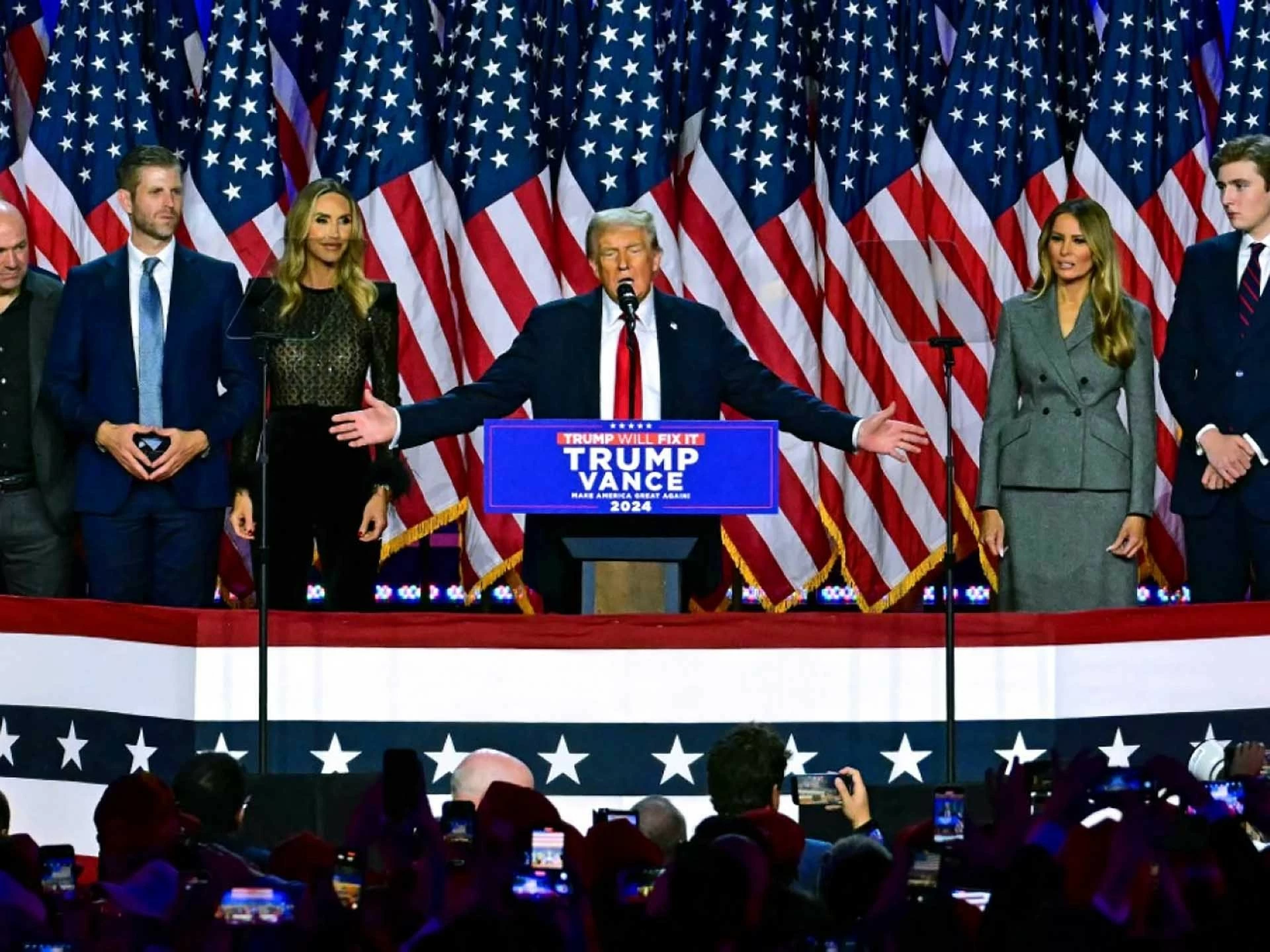 |
| Mr. Trump once declared that tariffs were his two favorite words. (Source: AFP) |
The 47th President of the United States is a fan of tariffs. Mr. Trump has declared that tariffs are his two favorite words.
During his first term as US president, he imposed tariffs on a range of products including washing machines, solar panels, imported steel and aluminum... This affected countries around the world, whether political allies or not.
During his 2024 presidential campaign, he promised more. He vowed to impose a 10% tariff on all imports into the world's largest economy, then increase it to 20%. Any goods from China would be taxed 60%.
Tariffs - a threat to Europe
Mr. Trump has focused a lot of attention on China, but according to DW news agency, the EU is "miniature China" to him.
The US has a $240 billion trade deficit with Europe. Countries such as Germany, Italy, Ireland and Sweden are the largest exporters to the US and account for the majority of this deficit.
Meanwhile, the world's top economy is also the EU's largest trading partner and oil and gas are among the top US exports to the 27-member bloc.
In late October, “Tariff Man” warned that he was unhappy with the trade balance and insisted that Europe would “pay a heavy price” if it did not import more goods from the US.
The EU sells more goods to the US than it buys from it, but the two have much in common and also much to lose.
The tariff conflict between the two sides could also become a major problem for the world's largest economy.
If Mr Trump were to impose new tariffs, it would almost certainly trigger retaliation from the 27-member bloc. This would make European goods more expensive for US consumers, pushing up overall prices and contributing to inflation.
Higher US tariffs on Chinese goods could also hurt Europe. If Beijing doesn’t export to Washington, it will turn to Europe, selling its goods at cheaper prices.
Germany suffered heavy losses
Experts say the economic policy proposed by the new White House boss will cause big problems for the EU and especially Germany.
Emphasizing this, Niclas Poitiers, a researcher at the Bruegel Institute specializing in international trade and economics, said that Mr. Trump's tariffs were a serious threat to the European economy, especially export-oriented countries like Germany.
"The European economy is still reeling from the wrong decision to buy energy from Russia and is affected by the decline in demand from China. Mr. Trump's tariffs have made the economic outlook for Europe even darker," he asserted.
Meanwhile, shortly after Mr. Trump was elected president, Mr. Clemens Fuest, president of the Munich-based Ifo Institute for Economic Research, warned of a clear protectionist agenda based on higher import tariffs and greater restrictions on international trade. China and potentially Europe would be the economies that would "suffer".
The Ifo institute calculates that a 20% tariff on imported goods could reduce German exports to the United States by about 15% and cause economic damage of 33 billion euros ($35.3 billion).
The German Economic Institute also calculated that a trade war with 10% tariffs on both sides could cost the German economy 127 billion euros during Mr. Trump's four-year term in the White House.
A 20% tax could cost the German economy 180 billion euros.
 |
| German economy continues to be under pressure. (Source: Getty Images) |
Trump's Purpose
In Europe, economic growth is slowing. Germany, the EU’s largest economy, is heading for a second straight year of recession. The country is particularly dependent on the auto industry for growth. New US tariffs will hit Berlin hard.
The EU needs to increase its own competitiveness, strengthen its defense capabilities and address the challenges posed by China, the Federation of German Industries said in a statement.
The top priority is to prevent new tariffs from happening in the first place.
If that does not work then countermeasures will be needed, but this also requires a united “front” from all 27 EU member states.
Penny Naas, a public policy expert at the German Marshall Fund of the United States in Washington, said Trump believes tariffs are an effective tool to promote domestic production and create leverage in international negotiations.
"The president-elect sees tariffs as an effective way to rebalance the trade deficit. His top tariff priorities will likely be steel and autos," Penny Naas predicted.
Ms Penny Naas added that the new White House boss has used the threat of tariffs to win concessions from trading partners in the past.
"I wouldn't be surprised if countries with trade deficits have started negotiating to buy more from the world's leading economy," said a public policy expert at the German Marshall Fund of the United States.
Bruegel's Mr Poitiers stressed that Mr Trump's tariffs would not lead to the end of globalization and trade - something some fear.
However, Mr Trump's upcoming presidency could mark the end of US-led globalization, Mr Poitiers predicted.
However, most countries are still interested in cooperating and working together. For Europe, it is important that the region continues to push for deeper economic integration. "Europe should build alliances with like-minded countries to maintain prosperity in the future," Mr. Poitiers affirmed.
Source: https://baoquocte.vn/hau-bau-cu-duc-them-don-dau-vi-hai-tu-yeu-thich-cua-ong-trump-my-va-chau-au-co-nhieu-thu-de-mat-293683.html








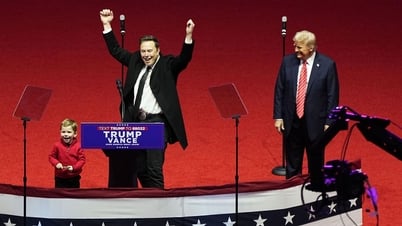


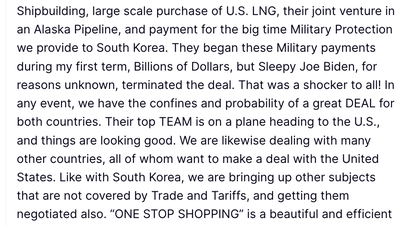
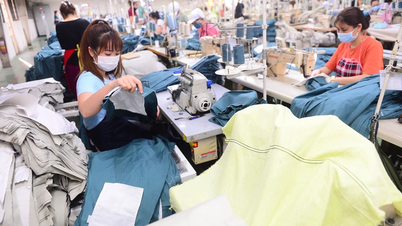

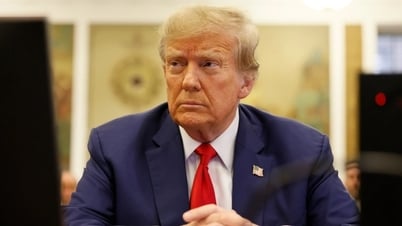




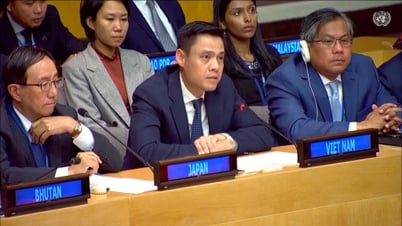
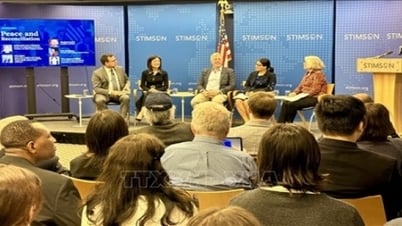











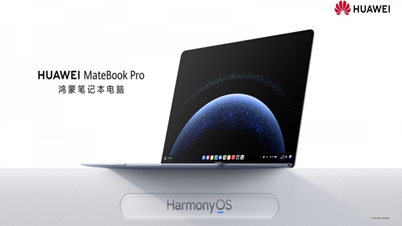































































Comment (0)